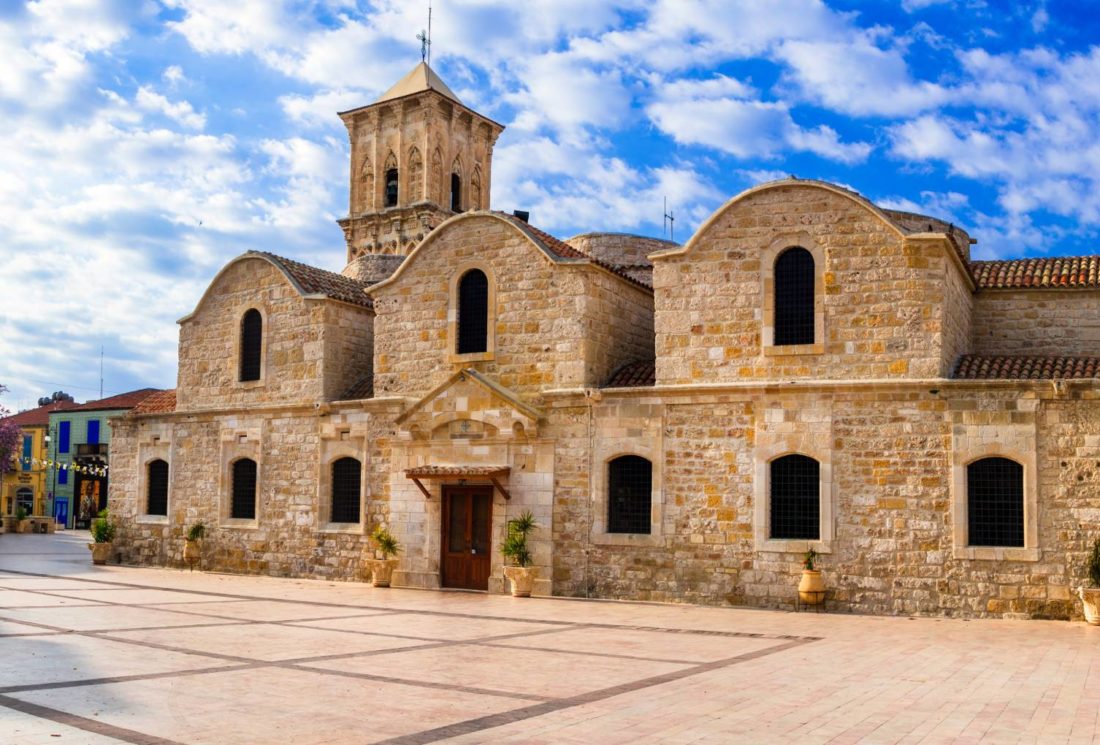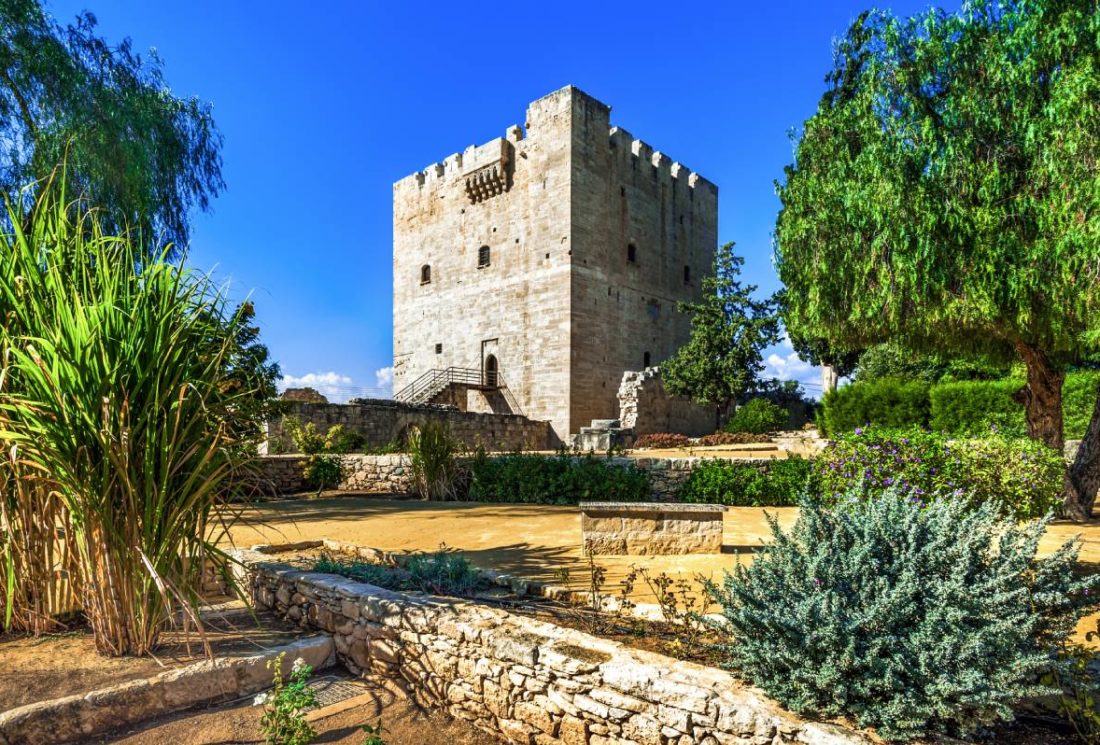
A Guide to Visiting Cyprus
Goddesses, golden beaches and red hot sun
Cyprus is a paradise for sun worshippers, offering a warmer climate than Spain and Italy and is just four hours away by flight.
Sitting in a prime Mediterranean position, where European and Middle Eastern cultures combine, Cyprus is a popular place to chase the heat in all seasons.
Families can take little ones to build sand castles and bathe in the sparkling sea, while loved-up couples will adore the delicious cuisine and romantic backdrops. Read up on all the star attractions before your big trip to plan the perfect stay.
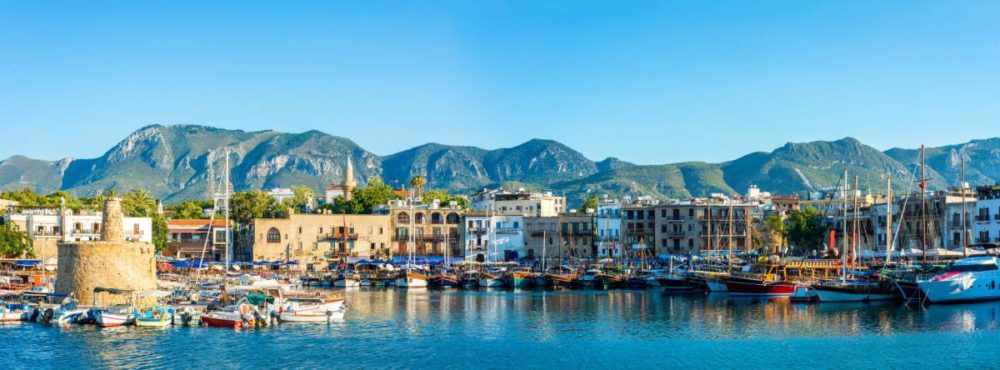
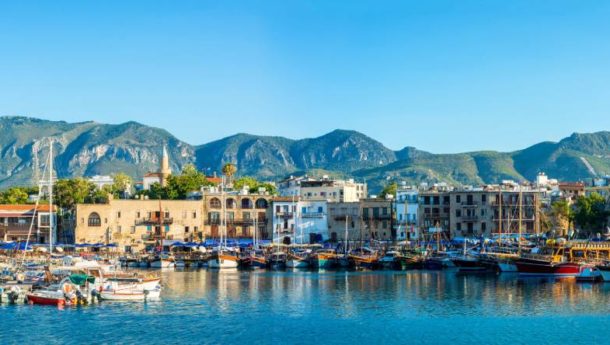
Cyprus at a glance
Cyprus is the third largest island in the Mediterranean, but it’s plenty more besides. According to legend, the Greek goddess of love was born on the paradise isle, where you’ll still find plenty of romantic spots. Cyprus is home to the energetic party town of Ayia Napa and incredible cultural quarters too. From ancient wonders at Paphos to the aquamarine waters of Coral Bay, you’re sure to find a resort that suits your tastes.
Intrigued? Design your perfect holiday with our complete guide to Cyprus.
Travel advice when visiting Cyprus
As the holiday destination of choice for about one million Brits every year, the Cypriot Republic is a safe and secure nation. Most visitors enjoy their stay without any problems, but it is still important to be aware of potential dangers.
Safety tips for your Cyprus trip
Always keep an eye on your valuables, including passports and currency. In July and August the temperature can climb above 40°C so make sure you pack high factor sunscreen and drink plenty of water.
Always take out comprehensive travel insurance before travelling to Cyprus, just in case.
Call 112 if you need to reach the Emergency Services during your stay.
Getting around Cyprus
Though there is no railway system, Interurban buses connect all the major cities and tourism hotspots in Cyprus.
Cypriots drive on the left, which means car rental is a popular way for British travellers to get around. The roads in Cyprus may be more hazardous than in the UK, though, so take extra care.
It is possible to travel to northern Cyprus from some border checkpoints, but always ensure your insurance covers this. Since northern Cyprus is governed separately, there are strict rules about transporting products across the buffer zone. To avoid fines, it is a good idea to read up on the local laws before you go.
Average accommodation costs
The average cost of a hotel room is €75 per night in Cyprus.
The best beaches in Cyprus
There is no shortage of dreamlike sand in Cyprus, so grab your swimwear and head to the surf. Whether you’re searching for untouched perfection or bucket-and-spade family fun, there’s something for everyone on the Cypriot shores.
Here are some of the best beaches in Cyprus you can expect to visit:
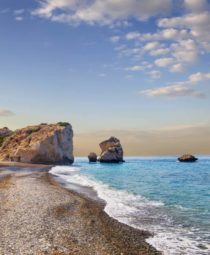
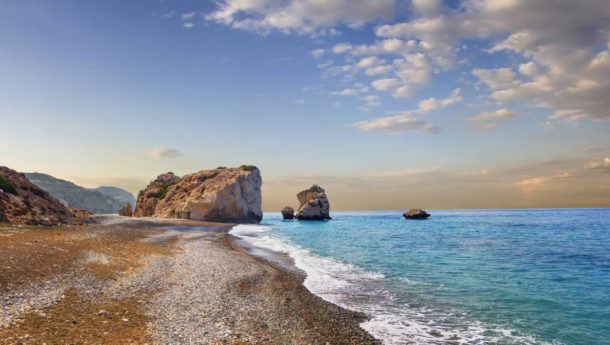
Aphrodite Beach
Mythical and romantic, Aphrodite Beach is the perfect place to bring your partner for an afternoon in the sun.
According to legend, this is the place where the Greek goddess of love and fertility was born. Visit the beach and you can touch Aphrodite’s rock – the place where the goddess is said to have risen from the foamy waters of Petra Tou Romiou.
Today this towering rock is the main attraction at the pebbled beach, where locals and tourists alike flock hoping to secure luck in their romantic lives.
Top travel tip: Photographers will find that sunrise is a great time to beat the crowds, while the beautiful colours at sunset bring the magic to life.
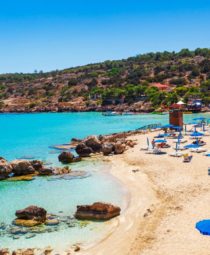
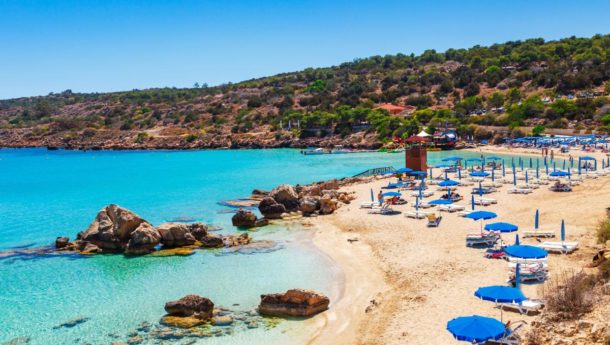
Nissi Beach
Sunkissed and bustling, Nissi Beach is one of the most popular stretches in Cyprus.
Just a stone’s throw from revelrous Ayia Napa, Nissi Beach is a great place to soak up some rays and socialise in all seasons. This is one of the best white sand beaches in Cyprus and good things don’t stay secret for long. If you’re looking for palm trees, beach bars and no shortage of people, this is the place to be.
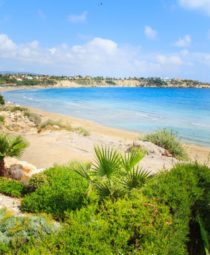
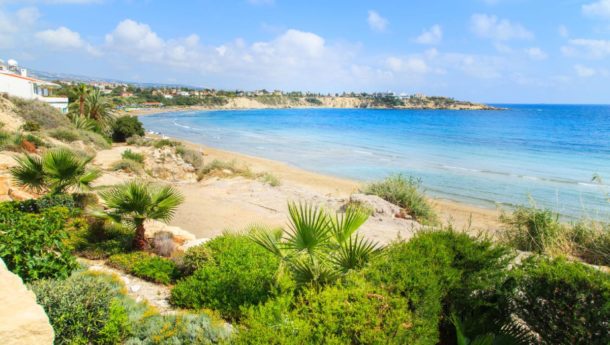
Coral Bay
Golden sands are just the beginning at Coral Bay, the popular paradise resort just outside of Paphos.
Wade beyond the soft beach and you’ll find clear turquoise waters great for diving, swimming and water sports. This is a Blue Flag beach flanked by rugged sea caves and though there are great bars and restaurants nearby, you will find a laid-back tropical atmosphere with no high-rise hotels.
This makes Coral Bay a great family beach with something for kids, teens and parents.
Things to do in Cyprus
One of the most popular things to do in Cyprus is a trip across the border into the north. There are lots of rules about crossing the border, so taking a guided tour is often the safest and most convenient way to travel.
You will be able to explore the lush beauty of the natural landscape, religious buildings and unique Turkish-influenced culture. Golden Beach is an unspoilt location stretching for miles on the Karpaz Peninsula.
Nicosia is the last divided capital city on earth, where Venetian walls line the streets of a place trapped in limbo. In the Old Town you’ll find the Cyprus Museum, plus a handful of the country’s best artsy attractions.
Bring your passport, since much of the exquisitely crafted architecture is north of the Green Line. Keep an eye out for the meeting of cultures at the Selimiye Camii mosque – a Gothic building which was once a cathedral.
It is also possible to discover the unknown in southern Cyprus. Rural towns in the mountains close to Paphos Forest are packed with hidden treasures. You’ll find monasteries, UNESCO World Heritage Sites and the beautiful Caledonia Waterfall in the Troodos Mountains.
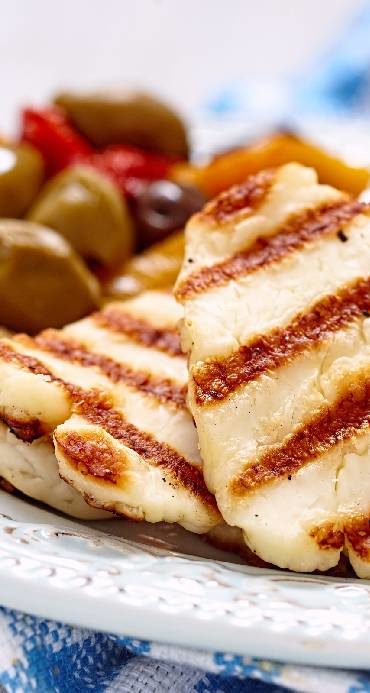
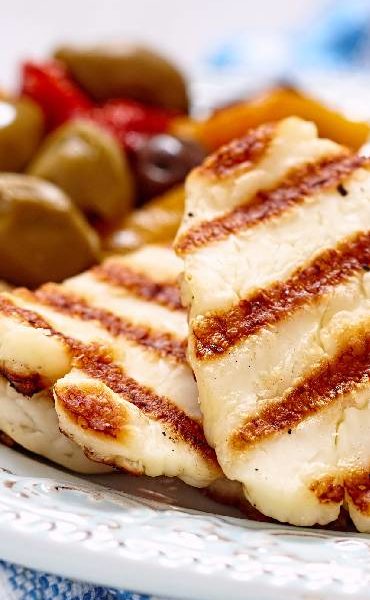
Food and drink in Cyprus
Grilled halloumi
Probably the most famous export from Cypriot shores, halloumi has transformed the way we view cheese the world over. This rubber-textured cheese is made from sheep or goat’s milk, before being seared on a fire-hot grill and served with warm pitta.
Beef stifado
The island’s signature stew is made with onions, tomatoes and fragrant herbs that grow across the island.
Moussaka
Another staple, this lasagne-like dish is made from layers of aubergine, potatoes and minced lamb. When asked, many restaurants will offer a vegetarian option and meat-free travellers can opt for stuffed vegetables or vine leaves as an alternative dish.
Meze
If you’re feeling particularly hungry, try Meze. Meaning “small dishes”, this platter is a local delicacy served with a waistband-bursting selection of dips and meats. From hummus to tzatziki, each miniature dish has diverse origins from Greece to Lebanon.
Ouzo
Ouzo is sometimes served after a meal, as well as the popular Commandaria dessert wine. KEO is the de facto national beer which will cost you significantly less than imports.


Cyprus nightlife
After dark, this balmy isle comes to life with the gentle purr of parties. Ayia Napa is one of the liveliest night spots in Europe, where the Hard Rock Cafe and Castle Club attract revellers in droves.
If you’re looking for a more relaxed evening, spend some time wining and dining at the quaint fish restaurants at the Ayia Napa Harbour. From Larnaca, it takes only 45 minutes to reach Ayia Napa.
If you’re looking for an after-dark buzz that doesn’t last until morning, try the more reserved promenade at Limassol. You’ll find live music bars aplenty and a diverse selection of other watering holes, including upmarket beach clubs, sports bars and expat-style pubs.
Shopping in Cyprus
Once you’ve spent some time soaking up sunshine and indulging in the nightlife, you may be looking for somewhere to spend your spare euros.
Ledra Street is one of the best places to shop in Nicosia and is well worth a visit if you’re in the capital. Here you’ll find international coffee shop chains and trendy Cypriot boutiques. There are fashion shops selling products from every corner of the globe and niche comic shops tucked down side streets.
My Mall is Limassol’s star retail spot – a towering department store dome where you can buy everything from smartphones to apparel from the world’s biggest brands. The collection is housed under a glass roof alongside premium restaurants and even an ice skating rink.
If you’re staying near Paphos, there is no shortage of cute craft stores. The Place is simply unmissable; a great location to browse Old Town treasures. Inside, you can learn about traditional Cypriot workmanship including ceramic pottery and wood carving. This is more than just a gift store – you can even try wine tasting or relax in the traditional on-site ‘kafenio’ coffee shop.
Since this city is so bursting with old world charm, you may not be surprised to learn that there are more shopping delights in Paphos. Aphrodite Jewellery is one of the largest jewellery shops in the nation, where you can browse the island’s gems and shop for valuable trinkets.
Cyprus culture and art
You might come for sand and sea, but it is simply not worth missing the delights of the Cypriot cultural scene. The Cyprus Museum in Nicosia is an important landmark where archaeological treasures are housed in a British colonial building – which itself is a slice of history.
A great place to stroll from the city or the beach to be instantly transported. Step inside to find huge sculptures and themed exhibitions, then explore Larnaca’s other treasures including the Halcoessa Copper Art shop. Here, you can see local craftsmen creating copper homeware in the small workshop.
For a more immersive taste of Cypriot culture, head to the Kykkos Monastery in the Marathasa Valley. Here you will be able to appreciate the important role religion has always played in local life.
Of course, the city of Paphos is a cultural attraction in itself. Make sure you don’t miss the preserved Roman mosaics where art and history combine – it’s a great insight into the ancient world.

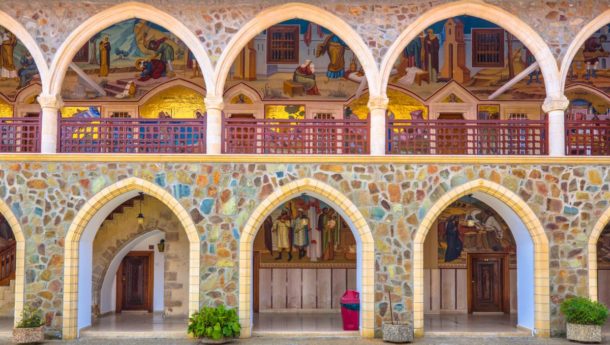
Outdoor adventure in Cyprus
Cyprus is home to Mount Olympus – not the version from Greek mythology, but ice-capped and impressive nonetheless. Seasoned explorers will love the views and there are even four ski slopes named after Greek gods and goddesses.
If you prefer to stay in the warmth of lower altitudes, try snorkelling at Cape Greco. These crystalline waters form part of the Cape Greco National Park, where coastal wildlife enjoys its own little haven.
Along the hiking routes you’ll see sea caves, beautiful clifftop flowers and rich marine life.
Look out for the Kamara tou Koraka natural ‘bridge’ – the scenery here is so stunning that you might spot newlywed couples using the romantic landscape as a backdrop for photographs. Inside the water you’ll see tropical fish and, if you’re lucky, even turtles.
Off-the-beaten track
There is more to Cyprus than lush scenery, luxurious beaches and great museums. If you are looking for unusual things to do in Cyprus, check out these ideas:

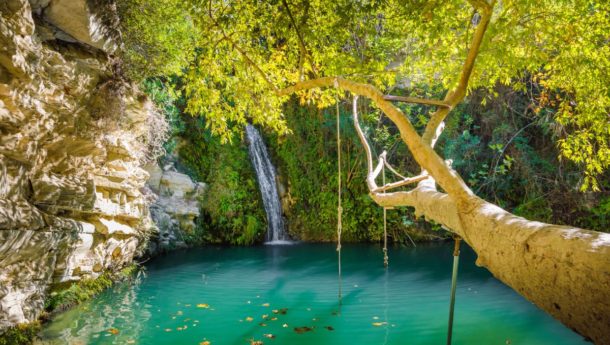
Adonis Baths
A great place for an Instagram shot, Adonis Baths is a tranquil location framed by natural beauty including a waterfall.
This is another spot steeped in Greek mythology – legend has it that Aphrodite and Adonis had many children in this spot and that they are the ancestors of the modern people of Paphos.
The pools were also a site of jealousy when Artemis, the goddess of hunting, threw a golden almond into the baths hoping to lure Adonis into the depths. If looking at these pristine pools isn’t enough, you can also swim in the waters.
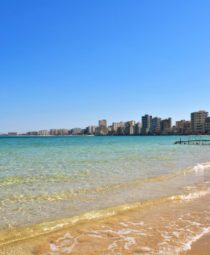
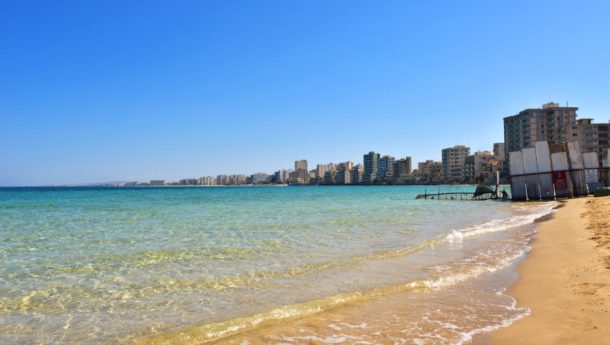
Varosha Ghost City
Cyprus has been a divided island since 1974 – one of the most interesting byproducts of this is the eerie ghost city of Varosha in Famagusta.
Once a bustling tourist destination complete with high-rise hotels and leisure centres, the ‘abandoned city’ now stands empty under the control of the Turkish military.
Though entry and photography are both forbidden, you can see the surreal ghost city in the flesh from the Famagusta Viewpoint. The Cultural Centre of the Occupied Famagusta offers insights from local people and is just next door.
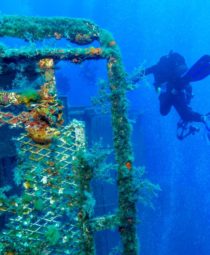
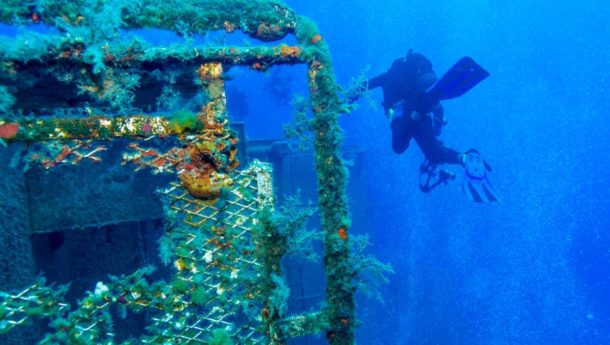
The Zenobia Shipwreck
If you love diving and wish to take your underwater explorations to the next level, head to the Zenobia Shipwreck near Larnaca.
The ship capsized in mysterious circumstances in 1980, carrying cargo worth millions of dollars. Book a diving or snorkelling tour from Larnaca to see a world of mystery through the crystal-clear sea.
If you are not a confident swimmer, it is even possible to take a trip in a glass-bottomed boat.
Best times to travel to Cyprus
Cyprus enjoys warm weather in spring, autumn and even winter, since even December holidays are graced with mild temperatures of around 17°C. Since July and August can see temperatures soar close to 45°C, some people prefer to visit Cyprus in June and September when the sun is less intense.
Cyprus is busiest in July, with August following closely behind. May is a strong contender for the best time to visit Cyprus, drawing crowds but less densely while benefiting from cooler temperatures. December is the quietest time, so you could get good deals on winter sun.
Now you know what Cyprus has to offer, the next step is to decide which resort to book for your next Mediterranean escape.

Find the perfect Cyprus holiday
Let us help you find the perfect holiday destination for you
View all Cyprus holidays